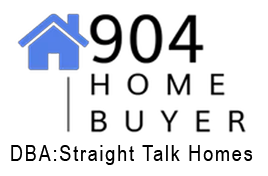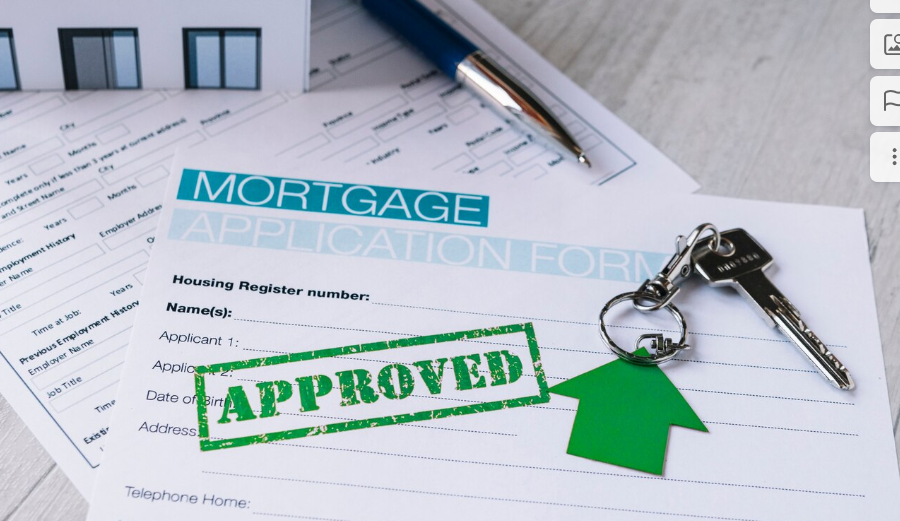Selling a Home in a Flood Zone: Florida’s Unique Challenges
Selling a home in a flood zone in Florida isn’t impossible—but it does come with some strings attached. Between flood insurance requirements, FEMA flood maps, and legal disclosures, it can feel like you’re walking through water—literally and legally. Florida's sunshine might draw people in, but rising tides and storm threats are a serious concern for buyers. So, if you're planning to sell a home in a flood zone, you’ve got to be smart, strategic, and transparent.
904 Home Buyer works with homeowners across Florida to sell homes fast, even in flood-prone areas. Whether your property is near the coast, a lake, or an inland canal, selling successfully means understanding the nuances of FEMA regulations, knowing your insurance obligations, and knowing how to market it to the right buyer. Terms like “Base Flood Elevation,” “Zone AE,” or “Preferred Risk Policy” can either confuse buyers or be used as tools to build confidence—depending on how they’re framed.
Let’s break down what you need to know if your home is in a flood zone and you’re ready to put that ‘For Sale’ sign in the ground.
What Exactly Is a Flood Zone?
Flood zones are geographic areas defined by FEMA to indicate a property’s level of flood risk. In Florida, you’ll see zones like A, AE, VE, and X. Here’s what they mean:
- Zone AE or VE: High-risk zones. Homes here often require mandatory flood insurance.
- Zone X (shaded or unshaded): Moderate to low risk. Insurance is optional but often recommended.
- Zone A: High risk but without detailed elevation data.
Most waterfront properties and many homes in southern Florida fall into some type of high-risk zone. And FEMA flood maps are constantly being updated, which means your property might be newly classified even if it wasn’t a concern before.
Knowing your current flood zone is essential before listing the home. You can find it by pulling your property up on the FEMA Flood Map Service Center—or asking your insurance agent or county property appraiser.
Mandatory Flood Zone Disclosures
Florida law requires sellers to disclose known facts that materially affect the value of the property, including flood risk and past flood damage. While there’s no specific “flood disclosure” form statewide, failing to be transparent can lead to serious legal trouble.
Buyers want honesty, especially when water is involved. Be upfront if:
- The home has experienced flooding.
- You’ve filed flood-related insurance claims.
- You’ve had to install drainage or waterproofing systems.
Offering documentation like FEMA elevation certificates or past survey reports can also build trust.
The Insurance Factor: What Sellers Must Know
Flood insurance is a key hurdle when selling a home in a flood zone. Most mortgage lenders require it in high-risk areas. Buyers will want to know:
- How much you pay annually for flood insurance.
- What your current policy covers.
- If the home has a transferable flood insurance policy (some policies under the National Flood Insurance Program (NFIP) can transfer to the new buyer).
If your premium is low, that’s a selling point! If it’s on the high side, consider getting an updated elevation certificate to potentially lower the rate. Buyers will appreciate any move that reduces their future costs.
Also, remember that private flood insurance may be an option and can be more affordable than NFIP policies in some areas.
FEMA Map Changes and Their Impact
FEMA updates flood maps regularly based on new data, climate trends, and topographical changes. A property that was in a low-risk area five years ago might now be considered high-risk—and vice versa.
Before listing your home, check the latest FEMA flood zone status. Buyers (and their lenders) will base their decisions on the most current information.
If a recent map change increased your flood zone risk, be prepared to explain why. If it decreased, that’s a win you can highlight in your marketing.
How to Price a Flood Zone Home Right
Let’s be honest: buyers may hesitate if they know a home sits in a flood zone. But that doesn’t mean you have to slash the price drastically.
Here’s what smart sellers do:
- Research comps: Look at other nearby homes in similar flood zones. How were they priced? How long did they stay on the market?
- Highlight flood mitigation: If your home has sump pumps, flood vents, or elevated foundations, these features can justify a stronger price.
- Play up positives: Is it a waterfront view? Close to beaches or canals? Those perks still matter and can outweigh flood concerns for many buyers.
- Be transparent: Buyers value clarity. If you're upfront about flood risk and costs, they'll trust the process more and feel better about offering a fair price.
Marketing a Home in a Flood Zone
You don’t have to hide the fact that your home is in a flood zone—you just need to position it properly. Marketing is all about focus.
Here are a few strategies 904 Home Buyer has seen work well:
1. Focus on Lifestyle
Many Florida buyers are willing to accept a bit of flood risk in exchange for water views, fishing, boating access, or beach proximity. Your marketing should showcase that lifestyle front and center.
2. Educate, Don’t Scare
Provide clear info about what flood insurance really costs and how the home has performed in past storms. If the home stayed dry during Hurricane Ian or Irma, say so. That’s a powerful selling point.
3. Visuals Matter
Use drone shots and high-quality images to showcase the neighborhood, elevation, and flood protection features. If the home has been elevated or retrofitted, make it a highlight.
4. Appeal to Investors
Some buyers—especially investors—know the game and aren’t deterred by flood zones. If the home could serve as a short-term rental or has a strong rental history, that’s a marketing win.
Should You Sell to a Cash Buyer Instead?
If you want to avoid delays, inspections, or the hassle of a picky buyer, consider working with a local cash buyer. 904 Home Buyer purchases homes in flood zones across Florida, offering fair prices without the usual red tape.
Benefits of selling to a cash buyer include:
- No repairs or updates required
- No waiting for financing approvals
- Quick closing timelines
- Selling the home as-is, even with past flood damage
For homeowners in flood zones who need to move quickly—or just don’t want the stress—this can be a great solution.
Final Thoughts
Selling a home in a Florida flood zone definitely adds a few layers to the process, but with the right strategy and transparency, it can still be a smooth transaction. Understand the flood zone details, gather your documents, price competitively, and highlight the lifestyle your property offers. Whether you're going the traditional route or selling directly to a local buyer like 904 Home Buyer, you have options.
Just remember: today’s buyers are informed and cautious, but they’re still looking for Florida sunshine. A little honesty and smart planning go a long way in making your home the one they choose.

Salim Omar
Salim is a straight-talking CPA with 30+ years of entrepreneurial and accounting experience. His professional background includes experience as a former Chief Financial Officer and, for the last twenty-five years, as a serial 7-Figure entrepreneur.









